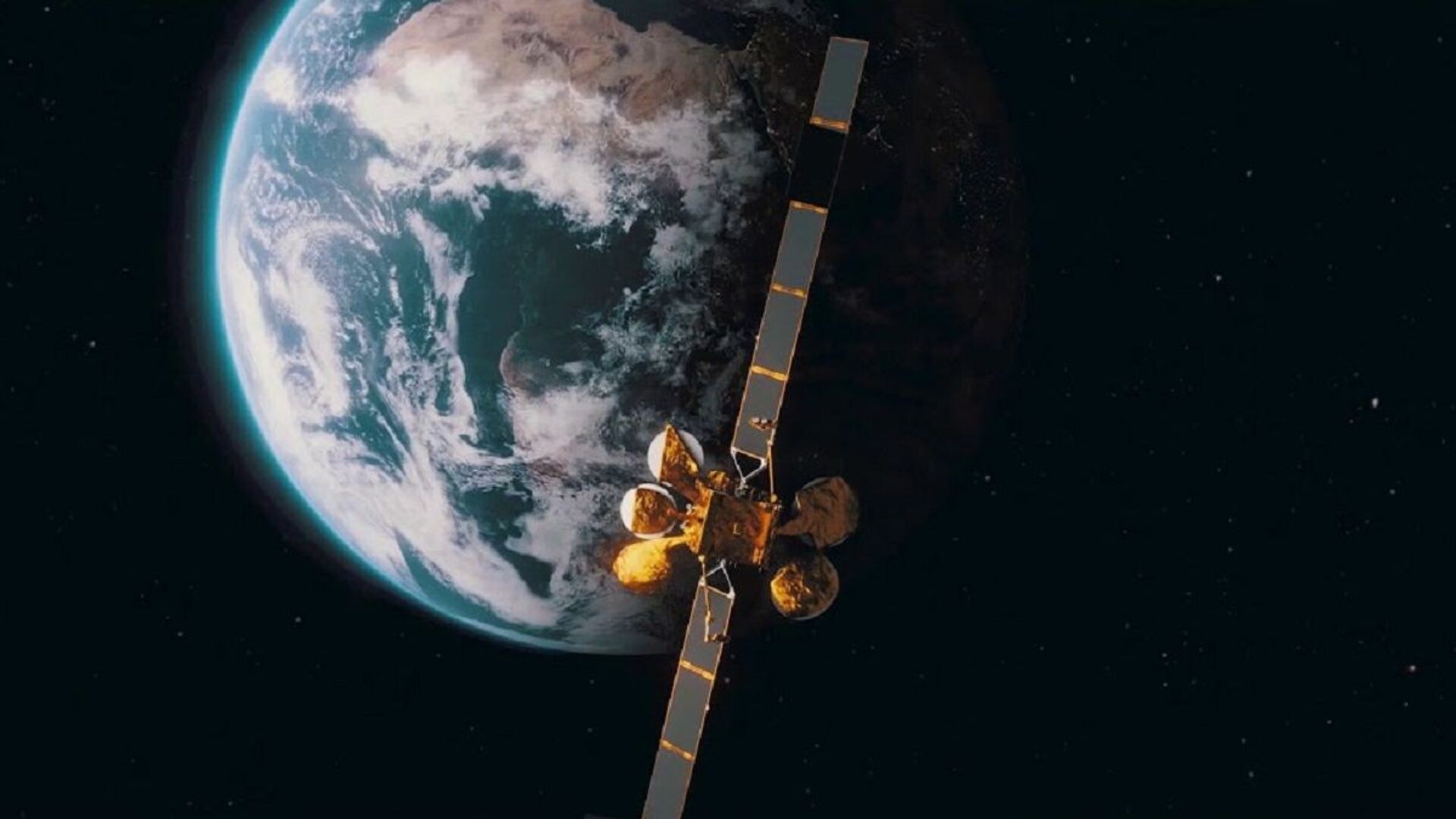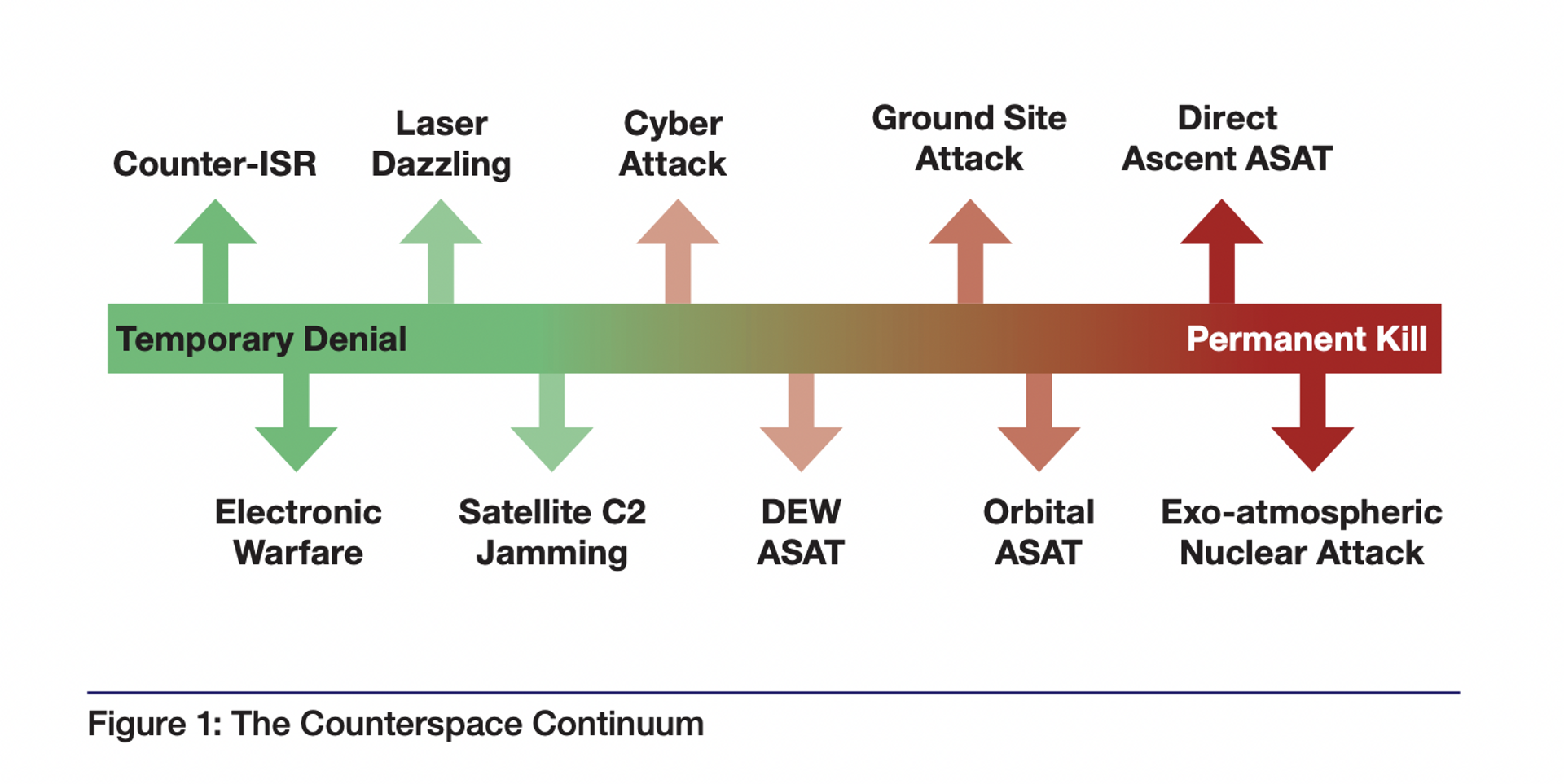https://sputnikglobe.com/20220202/uk-ministry-of-defense-report-cites-exo-atmospheric-nuclear-attack-as-greatest-threat-in-space-war-1092700565.html
UK Ministry of Defense Report Cites 'Exo-Atmospheric Nuclear Attack' as Greatest Threat in Space War
UK Ministry of Defense Report Cites 'Exo-Atmospheric Nuclear Attack' as Greatest Threat in Space War
Sputnik International
A United Kingdom Ministry of Defense (MOD) report suggests an “exo-atmospheric nuclear attack” could “permanently kill” the UK space presence. The report... 02.02.2022, Sputnik International
2022-02-02T23:43+0000
2022-02-02T23:43+0000
2023-04-12T16:59+0000
united kingdom (uk)
uk ministry of defense
space
https://cdn1.img.sputnikglobe.com/img/07e4/0c/0e/1081453963_196:0:1396:675_1920x0_80_0_0_ace2ae2d7fc60c3a8209d5519573b1a8.jpg
The report, named "Defense Space Strategy: Operationalising the Space Domain," does not go into detail about what an exo-atmospheric nuclear attack entails. It's worth noting that exo-atmospheric kill vehicles (EKV) were originally designed as part of missile defense systems. An EKV is boosted by a rocket before separating and autonomously striking an incoming missile.The suggestion of an exo-atmospheric nuclear weapon in space suggests that the technology can be used to target adversarial satellites, rendering a modern military without technology they have come to rely on.The graphic that lists “exo-atmospheric nuclear attack” as a “permanent kill” shows a continuum of threats with “Counter-ISR” and “Electronic Warfare” as posing a temporary denial.The 36-page report lays out the UK vision for the future of its space defense and further suggests how to “become a meaningful actor in space.”Control of space is now critical for modern life and military capability, according to the MOD. They list, “global communications, secure banking transactions, transport, meteorology and navigation,” as all highly-dependent on technology deployed in space.According to the report, space is an increasingly competitive domain rife with environmental, human, and adversarial factors. The report concedes, however, that environmental hazards remain the primary obstacle.To bolster and maintain UK status in space, a further £1.4 billion, over the next ten years, will be invested.The MOD report says the UK’s Skynet 6 program will be delivered in the next decade. The next-generation satellite program purports to “enhance the UK’s secure Satellite Communications capability and ensure the continued capacity to move large volumes of data to support Defence tasks and government activities.”
united kingdom (uk)
Sputnik International
feedback@sputniknews.com
+74956456601
MIA „Rossiya Segodnya“
2022
News
en_EN
Sputnik International
feedback@sputniknews.com
+74956456601
MIA „Rossiya Segodnya“
Sputnik International
feedback@sputniknews.com
+74956456601
MIA „Rossiya Segodnya“
united kingdom (uk), uk ministry of defense, space
united kingdom (uk), uk ministry of defense, space
UK Ministry of Defense Report Cites 'Exo-Atmospheric Nuclear Attack' as Greatest Threat in Space War
23:43 GMT 02.02.2022 (Updated: 16:59 GMT 12.04.2023) A United Kingdom Ministry of Defense (MOD) report suggests an “exo-atmospheric nuclear attack” could “permanently kill” the UK space presence. The report touches on the significance of space to military, economic, and daily life in the commonwealth, and the need to increase space defense.
The report, named "Defense Space Strategy: Operationalising the Space Domain," does not go into detail about what an exo-atmospheric nuclear attack entails. It's worth noting that exo-atmospheric kill vehicles (EKV) were originally designed as part of missile defense systems. An EKV is boosted by a rocket before separating and autonomously striking an incoming missile.
The suggestion of an exo-atmospheric nuclear weapon in space suggests that the technology can be used to target adversarial satellites, rendering a modern military without technology they have come to rely on.
The graphic that lists “exo-atmospheric nuclear attack” as a “permanent kill” shows a continuum of threats with “Counter-ISR” and “Electronic Warfare” as posing a temporary denial.
The 36-page report lays out the UK vision for the future of its space defense and further suggests how to “become a meaningful actor in space.”
The report claims that UK space ambitions support, “all four of the Integrated Review’s (IR)2 objectives to: strengthen security and defence at home and overseas; build resilience; sustain strategic advantage through science and technology; and shape the international order of the future.”
Control of space is now critical for modern life and military capability, according to the MOD. They list, “global communications, secure banking transactions, transport, meteorology and navigation,” as all highly-dependent on technology deployed in space.
The MOD goes as far as to say that space has become the fifth military domain, joining “cyber, maritime, air and land” and is “fundamental to our aspiration to integrate across those five domains.”
According to the report, space is an increasingly competitive domain rife with environmental, human, and adversarial factors. The report concedes, however, that environmental hazards remain the primary obstacle.
The report warns, “hostile actors and competitors seek to maximise their relative advantage in the domain. We must therefore work to both protect and defend the UK’s equities in space and the services derived from space assets.”
To bolster and maintain UK status in space, a further £1.4 billion, over the next ten years, will be invested.
The MOD report says the UK’s Skynet 6 program will be delivered in the next decade. The next-generation satellite program purports to “enhance the UK’s secure Satellite Communications capability and ensure the continued capacity to move large volumes of data to support Defence tasks and government activities.”


